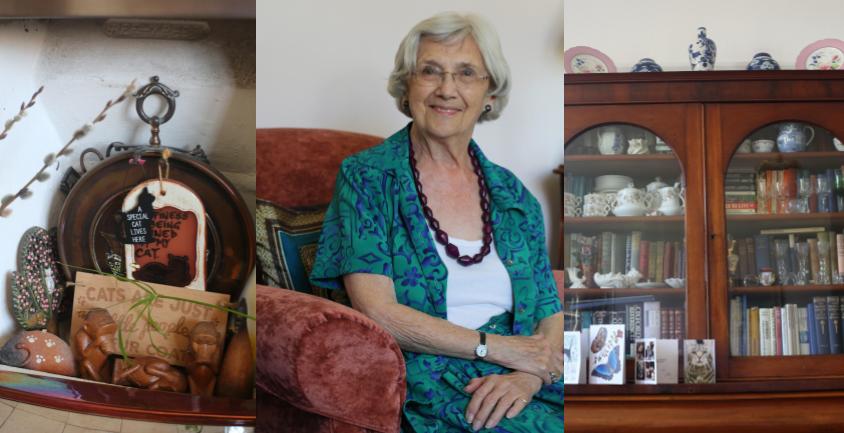She was known as Miss Cook, never Joyce. When Miss Cook was training to be a speech therapist in the late 1940s, her tutors were elocutionists and performers. The profession was just getting established. In her first job, Miss Cook remembers a
nurse greeting her; ‘How now brown cow.’ Her eyes flash. ‘I said, ‘I don’t mind you calling me a bitch, but I don’t like you calling me a cow.’’
When Miss Cook started at the Royal National Throat Nose & Ear Hospital in the 1950s, she was the only full-time speech therapist, with her own room, in any UK hospital. ‘You had to fight for your place and you had to keep it.’
Miss Cook worked with a full range of voice disorders, from the psychosomatic to the cancerous. In those days, there were no electric larynxes for patients who had their voice box surgically removed. The only way for them to regain the power of speech
was through ‘oesophageal voice’ – controlled burping. She kept up correspondence with grateful patients, checking how they were being treated by employers and attending weddings.
Initially, Miss Cook shared her department with residential tenants. Nearby there were Whitbread horses, a busy diary, a book shop (often raided by police) and a small child who would borrow her mother’s shoes and stamp the length of the street.
Miss Cook set about improving presentation, bringing in fresh flowers from her garden in Orpington every day. ‘If the patient is bored with what you’re saying, at least give them something to look at.’
Miss Cook established the Speech Therapy department in their bright top-floor rooms. Now, the Royal National Throat Nose &; Ear Hospital is moving to new purpose-built premises in 2019 (Huntley Street).
